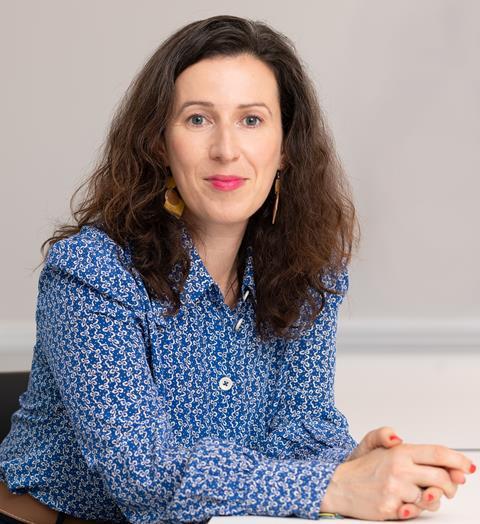In National Apprenticeship Week, law firms explain why they have embraced a route into the profession which is proving a lifeline for aspiring solicitors who cannot afford the traditional path
Five years after solicitor apprenticeships first came in, initial concerns about the alternative route into the profession are being confounded. Magic circle firm Allen & Overy and London firm Farrer & Co are among the big name firms preparing to welcome their first intake of solicitor-apprentices this autumn.
Much thought and effort seems to be going into these new programmes. ‘We have been working on this scheme for the past two years,’ says Katherine Wilde, director of knowledge, learning and development at Farrer & Co, which has been offering business service apprenticeships since 2017. The firm had to source a training provider for the Solicitors Qualifying Examination, devise the scheme and sort out the application process. ‘There was quite a long lead-in time. It takes a great deal of planning,’ Wilde said.
The two solicitor-apprentices joining Farrer & Co in September will spend their first two years rotating across various business services teams, followed by two years working in legal teams in a paralegal-style role, and then the final two years in a trainee solicitor position, undertaking the firm’s six-seat rotation before qualifying.
‘From a strategic point of view, we just want our qualified solicitors to have a really solid ground in the business of a law firm, appreciate the whole picture rather than getting bogged down in all the legal, technical stuff.’
A Law Society spokesperson said solicitor apprenticeships should work well in practice, ‘provided places are targeted at those from the intended lower-socio economic background, so they can get their start in the legal profession’.

Holly Moore (pictured), who was educated at state school and a first-generation university student, is in the final year of her six-year apprenticeship at broadcaster ITV.
‘The legal profession felt out of reach during my education, meaning that after my A-levels I thought I would need to give up my goal of qualifying as a solicitor, as I didn’t have the funds or financial support available to attend full-time university, and I needed to enter the world of work,’ she wrote in the Gazette last week.
‘However, the introduction of solicitor apprenticeships changed that, as I had the opportunity to gain my qualifications without any debt, earn a salary, build a personal brand and gain six years’ work experience before qualifying at a business that’s a household name. This is something I could only have dreamed of.’
Moore hopes the popularity of apprenticeships continues to increase, leading a to a more diverse, representative and inclusive profession.
Apprenticeships offer wider benefits too.
'It will not be the case that the apprentices are seen as second-class citizens because they did not do the traditional route. It will be opposite'
Katherine Wilde, Farrer & Co
Osborne Clarke’s first solicitor apprentices joined in 2018 and the firm will be welcoming its first solicitor apprentices in the London office this year.
This week the firm announced a programme supporting a group of senior managers from the Royal Society for Blind Children to develop their careers. Working with the Positive Transformation Group, Osborne Clarke has been able to transfer £70,000 in unused apprenticeship levy to help 10 RSBC senior managers upskill through a level 5 management apprenticeship.

Why not spend the unused levy on more solicitor apprentices?
Osborne Clarke says it will be ‘significantly’ increasing its numbers of solicitor and business services apprentices over the next few years.
Sarah Hunt, head of development at Osborne Clarke, said: ‘We have a great track record of recruiting and developing apprentices, who all receive senior support and oversight, high-quality work experience and client exposure. Our apprenticeship levy pot has built over the past few years because we wanted to grow the programme at a manageable rate. So rather than letting the fund expire, we saw an opportunity to use that surplus in the short term to support our responsible business framework, OC for Good.’
Bola Gibson, Osborne Clarke’s head of inclusion and corporate responsibility, added: ‘Working with PTG and RSBC was a great opportunity not only from a funding perspective, but equally for our people to engage and grow their mentoring and personal development skills.’
Discussing Farrer & Co’s scheme, Wilde said she herself had seen ‘both sides of the coin’, having begun her 22-year career with the firm as a commercial litigator before transferring to business services. ‘It will not be the case that the apprentices are seen as second-class citizens because they did not do the traditional route. It will be the opposite,’ she said.
The first SQE results are also reassuring. Although apprentices made up only 27 of the 1,090 candidates who sat the first exam, the Solicitors Regulation Authority said their pass rates were ‘well above average’.




































No comments yet